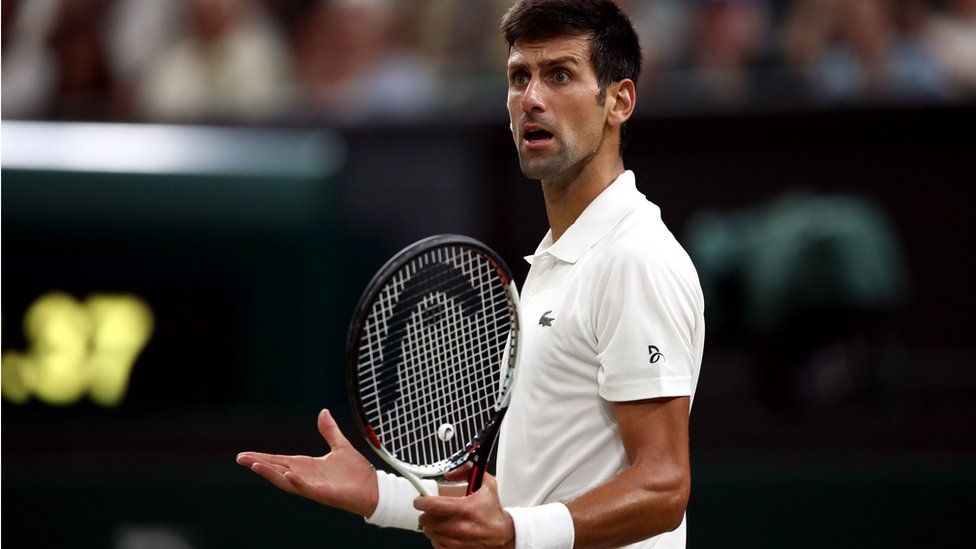Image source, PA Media
Tennis star Novak Djokovic’s chances of winning a record 21 Grand Slams hinge on an imminent decision by a court in Australia.
The Federal Court will hear his appeal after the government cancelled his visa for the second time this month on grounds of public interest.
It argues that the Serbian player, who has not been vaccinated for Covid-19, poses a threat to public health.
His defence say the grounds given are “invalid and illogical”.
Djokovic has been staying at an immigration detention hotel in Melbourne, the same place he was taken after his visa was first revoked following his arrival on 6 January.
A judge overturned that earlier decision, finding that border officials had ignored correct procedure when he arrived, but the government stepped in on Friday to revoke the visa again.
If he loses the new appeal, the world’s top-ranked men’s tennis player faces deportation and a three-year visa ban.
If the saga ends in a win before the court, he could be playing his first game in the Australian Open in Melbourne on Monday.
- ANALYSIS: The politics behind Australia’s decision
- EXPLAINER: Twists and turns of Djokovic’s visa saga
Three judges will decide Djokovic’s fate when the Federal Court meets at 09:30 local time on Sunday (22:30 GMT on Saturday).
They will look at whether Immigration Minister Alex Hawke was justified in cancelling Djokovic’s visa under Australia’s Migration Act.
Court documents show Mr Hawke concluded that the unvaccinated player’s presence could fuel opposition to Covid-19 vaccination.
“[I] consider that his presence may be a risk to the health of the Australian community,” he wrote in a letter to Djokovic and his lawyers, adding that he believed it could also provoke “civil unrest” because he was “a person of influence and status”.
Defence lawyer Nick Wood has challenged that argument, saying he believes deporting the player could potentially have the same effect.
There has been much public anger in Australia over Djokovic’s attempt to enter the country unvaccinated. Two of its most populous states, New South Wales and Victoria, have been reporting tens of thousands of Covid-19 cases for weeks, testing clinics are struggling and the number of deaths is rising.
The federal government is stressing that no-one is above the strict rules in place to cope with the pandemic.
While Djokovic is not vaccinated, he has caught Covid-19 twice, with the latest positive test on 16 December.
He was originally granted an exemption to enter Australia by two different independent health panels – one commissioned by Tennis Australia, the other by the state government of Victoria.
But Australian Border Force detained him on 5 January for not meeting federal coronavirus requirements.
Djokovic is currently level with Switzerland’s Roger Federer and Spain’s Rafael Nadal on 20 Grand Slams. The issue with his entry into Australia also raises questions about whether he will face difficulty playing in tournaments elsewhere.
Nadal said on Saturday: “[The] Australian Open is much more important than any player. If he’s playing finally, okay. If he’s not playing, the Australian Open will be great… with or without him.”
This video can not be played




























